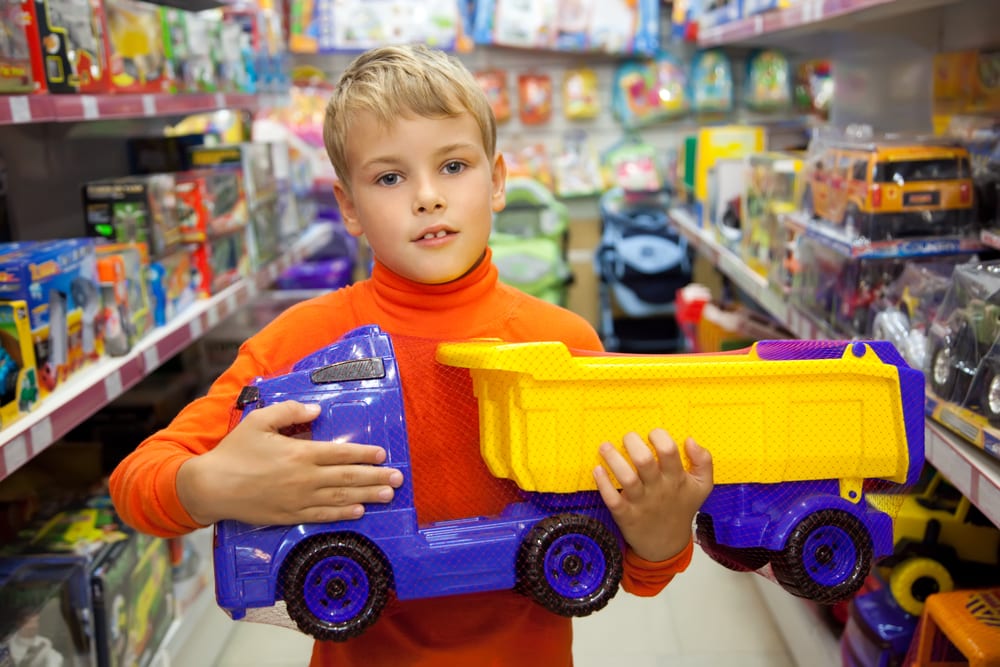It’s normal for kids to go through an ungrateful phase. They want to test theirs limits to see how much they can get away with. There are several strategies to consider when it comes to disciplining ungrateful children. And the strategies are not hard to do.
When children are young, they don’t realize they are being ungrateful. You have to make them aware of their behavior. Once you have explained the issue, talk about things in their life to be grateful for.
Point out how lucky they are to have the things they do and shouldn’t take them for granted. Have them make a list of all they are thankful for. You don’t have to go on and on, but just advise them of their actions.

Ways to Discipline Ungrateful Children
Set the Right Example
Children learn the most from their parents. When you model gratitude, they will pick up on how to do it themselves. This is no different than any other lesson you want to direct them through. It is not necessarily going to be the easiest lesson they learn, but parenting itself is a learning process.
Play with your kids and tell them all the things you value about them and grateful for. Allow them to practice doing the reverse with you.
Make A Deal
Every so often, don’t worry about making a “deal” with your child. For example, if they want to play for 30 minutes after bedtime, but you feel that is too long, make him feel invested in the decision by giving him two choices you are okay with.
It is a win-win with him getting something he wants while it’s something you can contend with.
Stand Your Ground
If your child chooses not to do what you say, stand your ground. It’s okay to sound like a “broken record.” I promise. There’s nothing wrong with being empathetic and listening to what he has to say.
Before you say no (for the 10th time), express empathy for them. For example, when your child wants two toys, calmly say, “I know you do, honey.” This helps calm him down to listen to you. Then, again, repeat in an even tone that they can only have one.
You may need to walk away if the conversation comes to a standstill and signal the discussion is over. Don’t become angry with your child or they will begin to focus on your behavior and not their own.

Allow Privileges When Earned
At least for the majority of the time, only give privileges when your child earns them. This shows them they have to obey the rules to get the things they ask for. Obviously, not EVERYTHING they ask for. But it reinforces the good behavior.
In addition, give them praise for good behavior. This will go a long way to building their self-esteem.
However, giving ungrateful children toys or other gifts in an effort to get them to act less selfishly just doesn’t work in the long run. What you end up doing is reinforcing the negative behavior and teaching them that they can misbehave and get rewarded for it.
If you predominantly react this way, they have no incentive to listen to you and be grateful.
Focus On Helping Others
By helping others, you might find your child focusing less on themselves. Have them get involved in random acts of kindness. It will take some time, but as they become more helpful, their view on gratefulness will change. Your child will become more empathetic and less likely to feel entitled.
Throughout the day, show them the wonderful events that go behind the scenes that most of us take for granted. Such as the police who patrol the streets for our safety, firemen on call in case of an emergency, and the grocery store cashier helping us get our food.
Likewise, the benefits they enjoy in a first world country, as in having a safe place to call home, heat and clean water. As they become more aware of all the luxuries they enjoy, ungrateful children will understand they have many things to be grateful for.
Child development experts tell us that ungrateful children typically don’t grow up to be overly greedy or selfish. By the age of 8 or 9, most kids will have grown out of this stage. So don’t panic just yet.
When these situations arise, take them one step at a time, as calmly as possible. Continue to be firm in your decisions and your ungrateful child will learn what behavior you expect from them.
Pin this for later so you can come back to it!





Related posts:

Leave a Reply